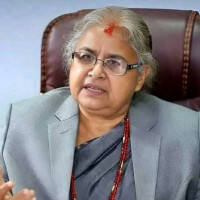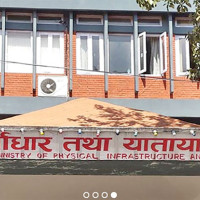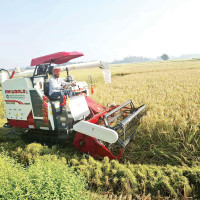- Monday, 20 October 2025
Industry establishment at snail’s pace in Bhairahawa-based SEZ
By Laxman Paudel,Bhairahawa, Mar. 23: It has been eight years since the Special Economic Zone (SEZ) was inaugurated in Bhairahawa, Rupandehi, with an aim to enhance export and reduce economic losses. However, establishment of industries is moving at a snail’s pace.
The SEZ's construction was started 19 years ago in then Bagaha Village Development Committee and was inaugurated by then Industry Minister Mahesh Basnet on November 18, 2014.
There are a total of 68 plots in Bhairahawa SEZ. Seven industries are in operation in 22 of the 68 plots. While one plot is for an electricity sub-station, proposal was sought for industry establishment in the remaining 45 plots.
In July 2022, the SEZ Authority Nepal, the governing body of SEZs, had issued a notice asking interested industries to submit their proposal to establish their infrastructure in Bhairahawa SEZ. According to officials, 16 industries have taken permission for establishment when the proposal was sought.
"Among them, four industries have started constructing their infrastructure," said Nira Bhattarai, an employee working at Bhairahawa SEZ.
There is a provision that SEZs can have industries related to 17 different sectors, such as agriculture, food, herbs, leather, cotton, pashmina and handmade paper, that are environment-friendly.
According to SEZ Authority, the industries operating in Bhairahawa SEZ are Shakti Minerals, Global Vistar, Brilliant Lighting, Panchakanya SS Export, Yes Polymers, Jaya Budhha Metal Crafts and Tirupati Pvt. Ltd. Meanwhile, the authority has terminated license of seven other industries till date.
The problem of a shortage of industries in the SEZ is said to be the result of a lack of operation directives and rules.
Another reason is lack of electricity. To operate industries in Bhairahawa SEZ, the zone requires 60-MW electricity. It costs Rs. 220 million to construct a sub-station, but the SEZ's budget is only Rs. 170 million.
While the electricity has arrived at the gate of Bhairahawa SEZ, the lack of sub-station has disallowed the zone to utilise the electricity.
There is also a provision that an industry operating in SEZ should export 60 per cent of the products they manufacture. Industrialists have shown reservation towards this provision.
"Under the prevailing conditions, industries operating in SEZ cannot compete in global market. The authorities should make plans focusing on how the manufacturing cost can be reduced for products produced in Nepal," said Mahendra Shrestha, an industrialist based in Bhairahawa.
"While we have been able to sell our tanks in Nepal and India, we haven’t been able to export our products to a third country. It is difficult to export our products to other countries," said Mohan Sahu, manager at Panchakanya SS Export.
Industries operating in Bhairahawa SEZ stressed that they haven’t been able to follow the rule that 60 per cent of the manufactured goods should be exported.
According to the representatives of Shakti Minerals, unless proper support and facilitation is provided by the SEZ, they cannot fulfil the necessary criteria.
Meanwhile, officials informed that they had provided necessary support.
"We have provided necessary support required for the industries. More industries are preparing to establish themselves and we are taking steps to make Bhairahawa SEZ more attractive and profitable," said Chandika Prasad Bhatta, executive director of SEZ Authority.
Officials informed that SEZ Authority was also planning to amend the rent and export criteria for industries to attract more firms to SEZs.
While the preliminary criteria was to export 80 per cent of the good, it was reduced to 60 per cent later. Now, it is being planned to implement the 60 per cent criteria only after five years of an industry's establishment at a SEZ.
Similarly, the rent was reduced to Rs. 20 per square feet from Rs. 150. Now, it is being planned to further reduce it to Rs. 10 per square feet.
A proposal has also been made to provide 50 per cent subsidy in electricity consumption for the first five years of the establishment.



-original-thumb.jpg)













